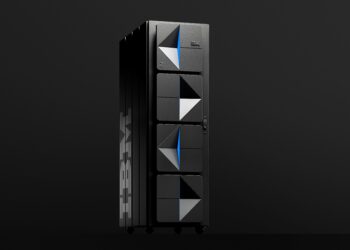Can you tell us about Cisco’s participation at GITEX this year?
As we all know, the theme of GITEX revolves around harnessing AI to forge the future’s new horizons. This perfectly aligns with Cisco’s core values. Innovation is etched into our DNA,.
When you consider the investments we make in R&D – approximately 6 billion US dollars annually with 25,000 patents yearly -it’s clear that innovation is at the heart of Cisco’s mission. AI isn’t a foreign concept for us; we’ve integrated predictive AI into our networks, security protocols, hardware, software, and even in tools like WebEx and our collaboration platforms – it’s ingrained everywhere.
However, our recent emphasis at Cisco is centrered around generative AI while adhering to ethical principles. Our approach prioritizes data privacy, security, and responsible data aggregation. We’re committed to ensuring our AI initiatives align with the highest ethical standards.
Are you demonstrating any practical applications of GenAI at GITEX?
Absolutely, we have selected four key verticals to showcase the transformative power of AI:
Education: Visitors can explore how AI is reshaping the future of education, from creating truly engaging smart classrooms to entire smart campuses. Collaborative tools, sentiment analysis, and other AI-driven solutions are revolutionizing the learning experience.
Healthcare: Our focus in healthcare is on delivering an end-to-end customer experience using AI. It’s not just about the hospital; it’s about homecare too. We’re talking about continuous monitoring of vital signs, blood pressure, and more, all while enhancing patient interaction, appointment scheduling, and hospital navigation. It’s about enveloping patients with care every step of the way.
Banking and Finance: In the ever-evolving world of banking and FinTech, we’re demonstrating the power of digital services, network management, security, and AI integration. We aim to streamline transactions, whether in branches or remotely, and ensure a seamless banking experience for customers.
Manufacturing: The convergence of IoT and AI is pivotal in manufacturing. We’re showcasing how generative analysis can optimize smart buildings and work environments. Imagine a workplace where everything, from temperature and humidity control to energy efficiency and CO2 emissions monitoring, is automated and enhanced by AI.
It’s crucial to highlight that AI is at the core of Cisco’s DNA and extends across the entire value chain. We have embedded AI in our hardware, similar to what you’d find in Nvidia chips, to software-defined networking, cybersecurity, and collaboration tools. We’re not just using AI; we’re shaping the AI landscape.
What are the key challenges and opportunities in preparing the workforce for the impending disruption and transformation of skills due to AI?
The demand for a broader skill set will be imperative to manage AI effectively. Currently, valued skills are on the cusp of disruption, and according to the World Economic Forum, a staggering 43% of existing skills are slated for transformation in the next four years. It underscores the necessity for future engineers and analysts who not only comprehend AI but can ethically apply it.
Furthermore, the need to integrate AI with sustainability is paramount. AI utilization often consumes substantial computational power, raising concerns about its environmental impact. To counter this, we must pioneer green technologies that harness renewable energy sources and are environmentally conscious. It’s about finding that balance between technological advancement and ecological well-being.
To put it in perspective, AI is projected to generate a colossal $15.7 trillion in business value by 2030. This is a profound game-changer that will reshape the world as we know it. To navigate this transformation, we require the engineers of the future, individuals who can harness these emerging skills and utilize AI effectively. Additionally, for those already in the workforce, upskilling is essential. Employers must take on the responsibility of upskilling their workforce. At the same time, universities and academic institutions must ensure that their graduates are equipped with the knowledge and understanding of AI’s applications and ethical implications. It’s a collaborative effort to shape a future where AI is a force for good.










Discussion about this post